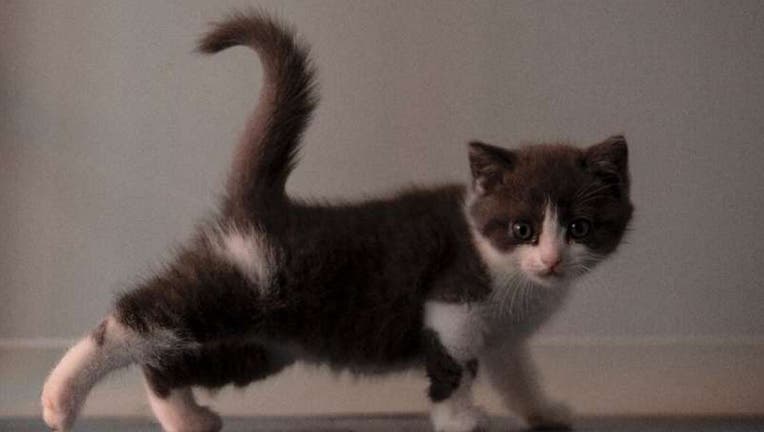China creates first cloned kitten: 'Meets the emotional needs of young generations'

The cloned cat, also named Garlic, was created from skin cells from the original cat after his owner unearthed the corpse. (Phys.org)
(FOX NEWS) -- A company in China has created the first cloned cat in the country after the original cat died suddenly in January.
Huang Yu reached out to Sinogene, a commercial pet-cloning company that has already cloned more than 40 dogs, after his cat, Garlic, died unexpectedly of a urinary tract infection.
“In my heart, Garlic is irreplaceable,” Huang, 22, said in an interview with The New York Times. “Garlic didn’t leave anything for future generations, so I could only choose to clone.”
Huang added that he was sad when his cat died, because it was sudden. "I blame myself for not taking him to the hospital in time, which led to his death," he told AFP.
The cloned cat, also named Garlic, was created from skin cells from the original cat after Huang unearthed the corpse. Sinogene took DNA samples and put them into feline eggs, ultimately producing 40 cloned embryos that were placed in surrogate cats.
There were three pregnancies, but only one made it to full term, Chen Benchi, the head of Sinogene’s experiments team, told the Times.
The whole process cost Huang $35,000, although the 40 dogs that were previously cloned ran approximately $53,000 each.
Speaking in an interview with AFP, Sinogene CEO Mi Jidong said that many of the customers were young people who were not high-income earners.
“In fact, a large proportion of customers are young people who have only graduated in the last few years,” Jidong told the news outlet. “Whatever the origin of pets, owners will see them as part of the family. Pet cloning meets the emotional needs of young generations.”
Although the "similarity between the two cats is more than 90 percent," Huang noted, there are still differences that led to him being "disappointed." The clone does not have a patch of black fur on its chin.
“If I tell you I wasn’t disappointed, then I would be lying to you,” Huang told the Times. “But I’m also willing to accept that there are certain situations in which there are limitations to the technology.”
Sinogene said the clone might have "slight differences" in fur or eye color, adding that a third-party proved the DNA is a match.
The Chinese company said it hopes the technology will be available for public use, including cloning endangered animals such as giant pandas or South China tigers, but that “will be quite difficult” and take “more time,” Mi said, according to the Times.
Pet owners around the world have cloned pets, including in South Korea, Britain and the U.S. Last year, singer and actress Barbra Streisand said that she had cloned her deceased dog, Samantha, to give her two new puppies, Miss Violet and Miss Scarlett.
Get updates on this story from FoxNews.com.

